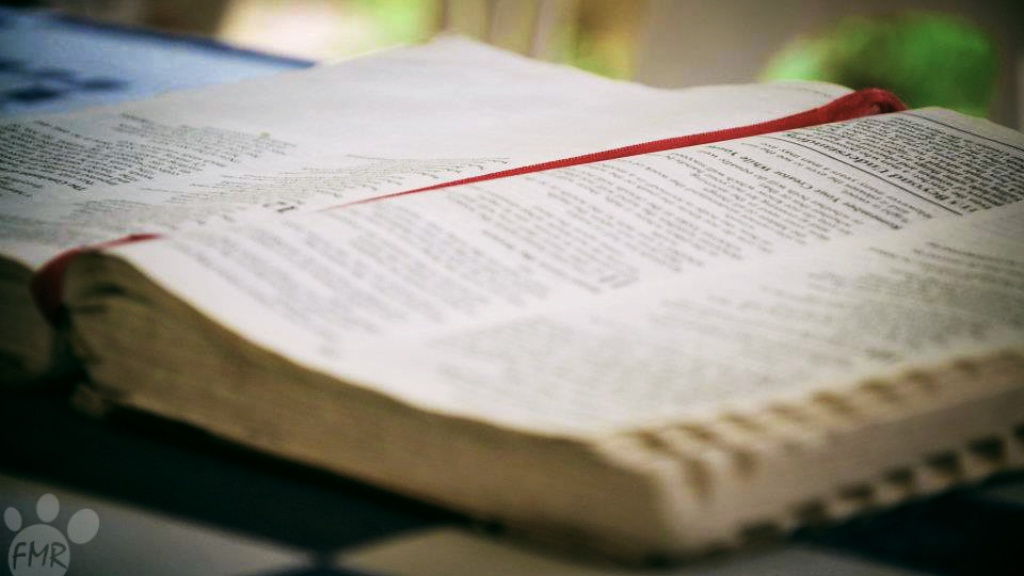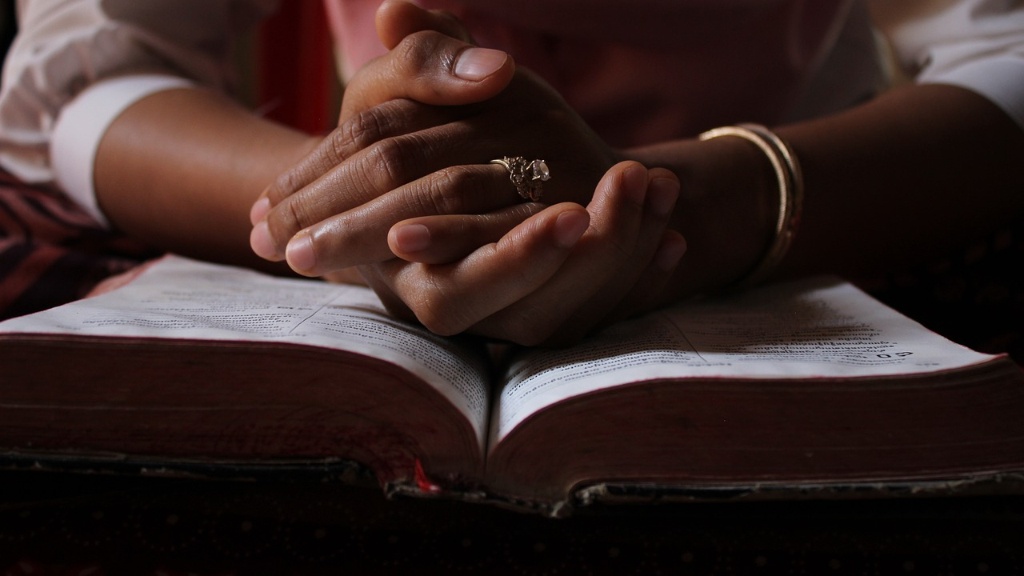The Virgin Mary is an iconic figure whose life has been widely discussed in religious contexts for centuries, particularly in Roman Catholicism, Eastern Orthodoxy, Anglicanism, and other denominations. The gospels of Matthew and Luke both recount the birth of Jesus as attributed to a divine intervention but also narrates that Mary was a virgin. But does the Bible really say that Mary was a virgin? Let’s take a closer look at the biblical verses and see what they tell us about Mary’s virginity.
The first references to Mary’s virginity come from the New Testament, namely Luke 1:26-27. In this passage, the angel Gabriel visits Mary and tells her that she is to bear the son of God. He also mentions that Mary was a “virgin” (Greek: parthenos). This is seen as an indication that Mary was not yet married, as the common-law practice at that time was for a bride to be a virgin when she married. However, there is some room for interpretation as the literal translation of parthenos is “young woman”, which could be indicative of either a married or unmarried state. It seems likely, then, that on hearing the angel’s message, Mary realized she had been chosen to be the mother of the promised messiah.
Matthew1: 18-25 has one of the clearest assertions of Mary’s virginity in the Bible. Here, the genealogy of Jesus Christ is traced through Joseph, not through Mary, as was customary for the time. This can be seen as proof that Mary did not have children with her husband, Joseph, prior to the birth of Jesus, as there would have been no point in constructing such an elaborate lineage from Joseph alone. The passage also confirms that Mary had been with child through the working of the Holy Spirit, solidifying her virginity further.
Another verse commonly cited as proof of Mary’s virginity is found in Isaiah 7:14, which states that a “virgin shall conceive and bear a son”. Many Christian theologians have interpreted this verse as a prophecy fulfilled in Mary’s story. A closer look at the Hebrew context of the verse reveals that the word used to describe the person in question is not necessarily “virgin” but can also mean “young woman” or “maiden”. Thus, the verse does not explicitly say that the person will be a virgin, and other interpretations are possible.
While the Bible does not explicitly say that Mary was a virgin, several verses are interpreted by theologians as evidence that she was not married prior to the conception of Jesus. These include the two verses from the New Testament, where Joseph is noted to be the father of Jesus, and the Old Testament verse from Isaiah, which many Christians believe to be a prophecy of Jesus’ birth. Thus, although we may never know for sure if Mary was a virgin when she conceived Jesus, the evidence suggests that she was not married according to the customs and laws of that time.
Family of Mary
The bible mentions very little of Mary’s family and what they might have thought of her pregnancy. Matthew 13 tells us that Mary was the daughter of Heli and thus a descendant of David. While one must caution against drawing too many conclusions from a single Bible passage, some scholars have speculated that this passage implies that Mary had a broad kinship support structure. Such a system was common in the ancient world, where extended families were often responsible for social, economic, and religious obligations, so it is plausible that Mary was given a certain degree of protection and assistance throughout her pregnancy.
More significantly, however, is the fact that Mary’s pregnancy was accepted as a sign of God’s presence. Matthew 1 states that Joseph was asked by an angel in a dream to take Mary as his wife, and he listened despite that the pregnancy did not come from their physical union. This demonstrates that Joseph and Mary both accepted the pregnancy as right and good, and that Mary and her pregnancy came to be seen by Joseph and those of the extended family as a blessing.
Reception To Mary’s Pregnancy Throughout History
Over the centuries since the Bible’s writings, the reception to Mary’s pregnancy has been mixed. Some religious sects view her pregnancy as an aberration, emphasizing the sin of immorality, while others see it as a sign of God’s love and forgiveness. Roman Catholics, for instance, honor Mary for her role in the story of Jesus, celebrating her as the “Blessed Virgin” and praying to her on a regular basis. Protestants, on the other hand, generally reject a cult of Mary and instead focus more on Christ.
One of the main differences between denominations lies in the way they view Mary. Roman Catholics view her as a “perpetual virgin”, meaning that she was a virgin both before and after the birth of Jesus. This interpretation is based on passages in the Bible, like the one in Matthew, which suggests that Mary was a virgin before her pregnancy. Other denominations do not consider Mary to have been a “perpetual” virgin, and thus they focus more closely on Jesus’ teachings while emphasizing Mary as a humble example of faith and obedience.
Despite the disagreements on how to view Mary, it is clear that her story has had a lasting impact on the religious landscape. The biblical narratives of her life have inspired countless works of art and worship, including countless popular songs and hymns. This legacy is reflective of the fact that Mary has become an important spiritual figure for people from many backgrounds, including both religious and non-religious individuals.
Mary As A Symbol Of Purity
Many Christians view Mary as a symbol of purity and innocence. This interpretation is based on the fact that Mary offered her body and soul to God in order to bear His son, making her a vessel of purity. In part, it may also be due to the belief that Mary’s virginity was maintained throughout her life—something that is seen as a sign of her unwavering spiritual devotion. In addition, Mary often serves as an example of humility and faith, providing comfort and guidance to her worshipers in times of need.
What is perhaps most remarkable about Mary is that she is revered by people of all faiths. In recent years, Mary has become a symbol of hope and comfort for many outside the Catholic and Orthodox churches. Muslims, for example, believe that Mary was a holy woman and a role model for all believers. Hindus regard Mary as a form of the Divine Mother, and Buddhists appreciate her as an example of compassion and self-sacrifice. In this way, she has become a unifying symbol of spirituality, connecting people from all corners of the globe.
Significance To The Virginity Question
The Bible does not explicitly state that Mary was a virgin prior to the birth of Jesus. Nevertheless, there are multiple verses in the New and Old Testament that suggest that she was in fact a virgin at the time of her pregnancy. These verses, when taken together, provide strong evidence that Mary’s pregnancy was an act of divine intervention and not the result of physical relations between Mary and Joseph.
Viewed apart from its religious context, Mary’s pregnancy serves as an example of faith and obedience. Mary could easily have been ostracized for her pregnancy and her unwavering commitment serves as an example to believers in any religion. Moreover, Mary’s story is one of hope and redemption, which has served to unite people of different faiths throughout the ages. In this way, Mary’s story continues to provide spiritual comfort, irrespective of one’s own religious commitments.
Mary in Christian Art and Culture
Mary is a prominent figure in Christian art and culture, and paintings of her appear in churches around the world. The most prolific of these is the “Virgin of Guadalupe” painting, which is venerated as a symbol of hope by Catholics and other Christian denominations. Even beyond religious contexts, Mary serves as a popular inspiration for films and literature. Her story, in all its complexity, has captivated people of all backgrounds, and its timelessness continues to be a source of inspiration to this day.
The Role of the Bible
Ultimately, whether or not Mary was a virgin is a matter of personal opinion and interpretation. The Bible does not explicitly state that she was a virgin, though various passages that point to this conclusion. What is more important, however, is the role that the Bible plays in conveying the story of Mary and Jesus. As a source of spiritual comfort and moral guidance, the Bible has provided believers with a true gift—a story of unconditional love and redemption that continues to inspire people today.
Conclusion of Mary’s Legacy
The story of the Virgin Mary has intrigued and inspired people everywhere for centuries. Whether she was a virgin or not, Mary’s story is one of courage and faith in God’s plan, and her unflinching commitment to it serves as an example to believers of all denominations. That her story still captivates us today is testament to its timelessness, and to the marvel of Mary’s courage and faith in God’s plan.




